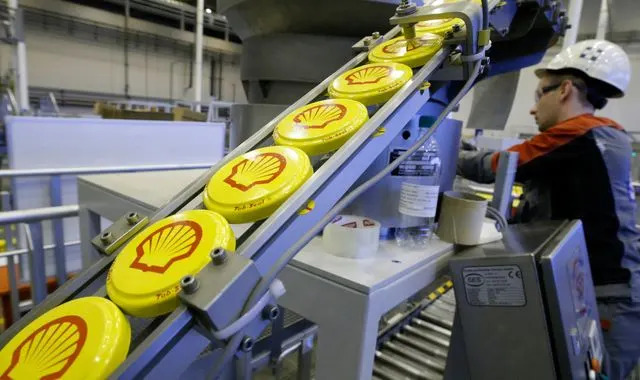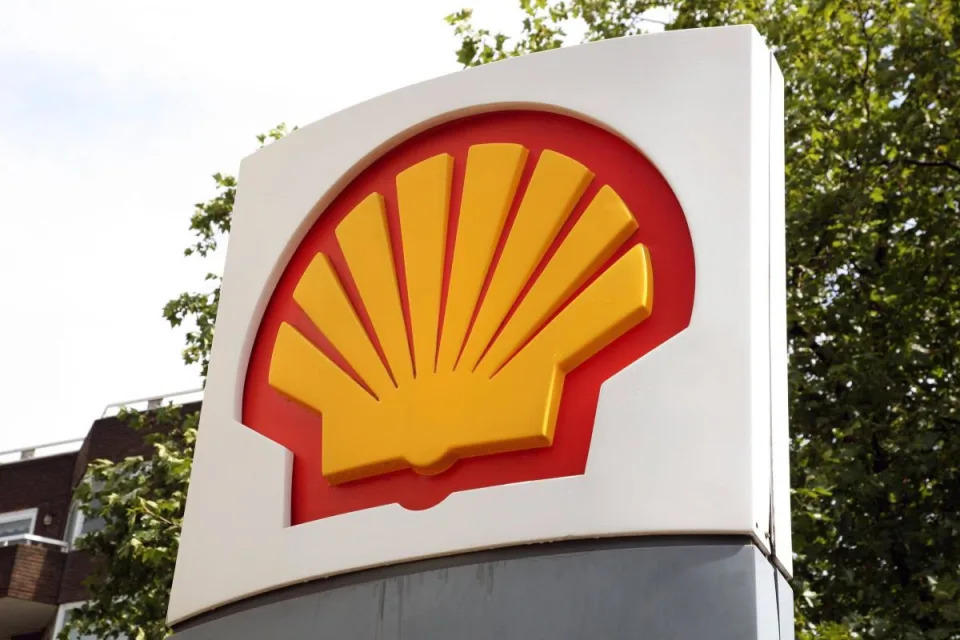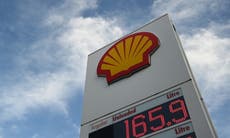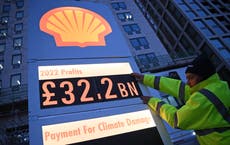THIS CAUSED INFLATION
Exxon smashes Western oil majors' earnings record with $56 billion profit for 2022Tue, January 31, 2023
By Sabrina Valle
HOUSTON (Reuters) - Exxon Mobil Corp posted a $56 billion profit for 2022, the company said on Tuesday, taking home about $6.3 million per hour last year, and setting not only a company record but a historic high for the Western oil industry.
Oil majors are expected to break their own annual records on high prices and soaring demand, pushing their combined take to near $200 billion. The scale has renewed criticism of the oil industry and sparked calls for more countries to levy windfall profit taxes on the companies.
Exxon's results far exceeded the then-record $45.2 billion net profit it reported in 2008, when oil hit $142 per barrel, 30% above last year's average price. Deep cost cuts during the pandemic helped supercharge last year's earnings.
"Overall earnings and cashflow were up pretty significantly year on year," Exxon Chief Financial Officer Kathryn Mikells told Reuters. "So that came really from a combination of strong markets, strong throughput, strong production, and really good cost control."
Exxon said it incurred a $1.3 billion hit to its fourth-quarter earnings from a European Union windfall tax that began in the final quarter and from asset impairments. The company is suing the EU, arguing that the levy exceeds its legal authority.
Excluding charges, profit for the full year was $59.1 billion. Production was up by about 100,000 barrels of oil and gas per day over a year ago to 3.8 million bpd. Adjusted per share profit of $3.40 beat consensus of $3.29 per share, according to Refinitiv data.
Shares were down 1.5% in pre-market trading to $111.88.
WINDFALL TAXES
The results may set up another confrontation with the White House. President Joe Biden's administration on Friday blasted oil firms for pouring cash into shareholder payouts rather than production.
Exxon boasted that its cash flow from operations soared to $76.8 billion last year, up from $48.1 billion in 2021.
Windfall profit taxes are "unlawful and bad policy," countered Mikells. Slapping new taxes on oil earnings "has the opposite effect of what you are trying to achieve," she said, adding that it would discourage new oil and gas production.
Exxon posted $14 billion in fourth-quarter profit excluding charges, 60% more than the same period last year but down almost 25% from the previous quarter as oil prices eased and some operations suffered from cold-weather-related outages.
A general view of a new crude distillation unit under construction at Exxon Mobil's refinery in Beaumont, Texas, U.S., November 23, 2022. REUTERS/Erwin Seba
PROJECT SPENDING
Exxon's spending on new oil and gas projects bounced back last year to $22.7 billion, up 37% from the prior year. The company increased outlays on discoveries in Guyana, in the top U.S. shale field, and on fuel refining and chemicals.
"The counter-cyclical investments we made before and during the pandemic provided the energy and products people needed as economies began recovering," Exxon Chief Executive Officer Darren Woods said in a statement.
Its results come ahead of what are expected to be strong earnings from Shell plc on Thursday and from BP plc and TotalEnergies next week.
(Reporting by Sabrina Valle; Editing by Christian Schmollinger and Mark Porter)
Exxon’s record $56 billion profit has renewed the White House’s outrage at oil companies

Ananya Bhattacharya
Wed, February 1, 2023
ExxonMobil raked in $55.7 billion in annual profits, shattering a 2008 record of $45 billion and setting a new goalpost for American and European fossil fuel companies.
Exxon CEO Darren Woods said the stellar annual profits came on the back of “a favorable market”—a combination of recovery in activity after covid and prices skyrocketing since Russia invaded Ukraine in February 2022—but credited the firm with taking advantage of the undersupplied market. “We leaned in when others leaned out,” he said.
While Woods celebrated the result, the White House called it “outrageous.” The Biden administration has been calling on oil companies, which receive hundreds of billions of dollars in public subsidies, to reinvest their profits to increase oil production to alleviate supply constraints following Russia’s war in Ukraine and lower energy prices.
Those calls have largely been ignored as fossil fuel giants see their recent earnings as well deserved after two years of pandemic restrictions hurt demand and their bottom line. Just last week, Chevron posted a record $36.5 billion profit for 2022 and announced a share buyback program—a move the Biden administration criticized.
While Democrats have condemned excessive corporate profits, Republicans, who tend to be heavily funded by the oil and gas industry, have blamed Biden’s policies for keeping gas prices high. Gas prices in the US peaked in June and then started decreasing as Biden released 180 million barrels of crude from the country’s Strategic Petroleum Reserve over several months. Gas prices are currently back at the level they displayed this time last year, before Russia invaded Ukraine.
Exxon's spending on new oil and gas projects bounced back last year to $22.7 billion, up 37% from the prior year. The company increased outlays on discoveries in Guyana, in the top U.S. shale field, and on fuel refining and chemicals.
"The counter-cyclical investments we made before and during the pandemic provided the energy and products people needed as economies began recovering," Exxon Chief Executive Officer Darren Woods said in a statement.
Its results come ahead of what are expected to be strong earnings from Shell plc on Thursday and from BP plc and TotalEnergies next week.
(Reporting by Sabrina Valle; Editing by Christian Schmollinger and Mark Porter)
Exxon’s record $56 billion profit has renewed the White House’s outrage at oil companies

Ananya Bhattacharya
Wed, February 1, 2023
ExxonMobil raked in $55.7 billion in annual profits, shattering a 2008 record of $45 billion and setting a new goalpost for American and European fossil fuel companies.
Exxon CEO Darren Woods said the stellar annual profits came on the back of “a favorable market”—a combination of recovery in activity after covid and prices skyrocketing since Russia invaded Ukraine in February 2022—but credited the firm with taking advantage of the undersupplied market. “We leaned in when others leaned out,” he said.
While Woods celebrated the result, the White House called it “outrageous.” The Biden administration has been calling on oil companies, which receive hundreds of billions of dollars in public subsidies, to reinvest their profits to increase oil production to alleviate supply constraints following Russia’s war in Ukraine and lower energy prices.
Those calls have largely been ignored as fossil fuel giants see their recent earnings as well deserved after two years of pandemic restrictions hurt demand and their bottom line. Just last week, Chevron posted a record $36.5 billion profit for 2022 and announced a share buyback program—a move the Biden administration criticized.
While Democrats have condemned excessive corporate profits, Republicans, who tend to be heavily funded by the oil and gas industry, have blamed Biden’s policies for keeping gas prices high. Gas prices in the US peaked in June and then started decreasing as Biden released 180 million barrels of crude from the country’s Strategic Petroleum Reserve over several months. Gas prices are currently back at the level they displayed this time last year, before Russia invaded Ukraine.
Charted: American consumers pay record amounts for gas
Quotable: White House irked by Exxon’s record profit
“It’s outrageous that Exxon has posted a new record for Western oil company profits after the American people were forced to pay such high prices at the pump amidst [Russian president Vladimir] Putin’s invasion. The latest earnings reports make clear that oil companies have everything they need, including record profits and thousands of unused but approved permits, to increase production, but they’re instead choosing to plow those profits into padding the pockets of executives and shareholders while House Republicans manufacture excuse after excuse to shield them from any accountability.” —White House spokesperson Abdullah Hasan
Exxon’s flourishing (again)
Back in 2013, Exxon was the world’s largest company. But in 2020, after the pandemic sent oil prices plummeting, it was among the energy companies plagued by massive losses. For the first time in decades, Exxon recorded an annual loss of $22 billion that year. The longest-tenured member of the Dow at 92 years, the oil major was embarrassingly ousted from the index in August 2020.
A little under two years later, though, Exxon has recovered. In June 2022, its stock was up over 150% since Dow Jones dropped it. Meanwhile, the company that replaced the oil giant on the index, Salesforce, was down 30%.
One big number: $190 billion
$190 billion: The estimated combined profit of oil majors Exxon, Chevron, BP, Shell and TotalEnergies for 2022, according to a Jan. 27 CNBC report citing Refinitiv analysts.
Should oil companies in the US pay a windfall tax?
Europe has imposed a 33% windfall tax on energy companies’ surplus profits. Britain is charging a 25% energy profits levy. California has been weighing something similar, and the US president has suggested putting one in place as well if companies don’t voluntarily repatriate profits.
The reception to such a tax won’t be without resistance. Exxon has sued to block the EU tax, which is set to cost the company an estimated $1.8 billion for 2022. “This tax will undermine investor confidence, discourage investment, and increase reliance on imported energy and fuel products,” the company said.
Shell announces record annual profits of £32.2bn after energy price surge
Wed, 1 February 2023

Shell has announced annual profits of $39.9bn (£32.2bn), doubling from a year earlier and far exceeding the previous record of $31bn in 2008.
The London-listed company also posted record fourth-quarter earnings of $9.8bn (£7.9bn).
The profits - which were even higher than the $38.17bn (£30.8bn) analysts had expected - came thanks to bumper gas prices as Russia's invasion of Ukraine led countries to wean themselves off Russian fuel imports.
The majority of profits came from Shell's gas operations.
It is just the latest energy company to announce record profits as prices rose in the wake of the invasion. This week oil and gas company Exxon Mobil recorded net profit in 2022 of $56bn (£45.25bn), a record high for the entire Western oil industry.
Pressure has mounted on businesses over those profits as consumers struggle with a cost of living crisis, with both the EU and UK announcing a windfall one-off tax on energy company profits.
Those taxes will mean Shell faces an estimated $2.3bn (£1.86bn) in charges for the full year, the firm reported on Thursday.
In January, Shell estimated those tax payments are to hit the company by around $2bn (£1.7bn) in the final three months of its financial year.
The UK windfall tax, announced under Rishi Sunak as chancellor, means oil and gas firms pay a 25% levy on profits - but companies will get tax breaks worth 91p for every £1 invested.
Shell chief executive Wael Sawan said: "Our results in Q4 and across the full year demonstrate the strength of Shell's differentiated portfolio, as well as our capacity to deliver vital energy to our customers in a volatile world.
"We believe that Shell is well positioned to be the trusted partner through the energy transition."
It follows a year when consumers grappled with spiralling energy costs which has fed into persistent double-digit inflation.
The average cost of a litre of unleaded was at a record high of 191.5p in July, marking a good year for Shell.
In October, it reported operating profits of $9.5bn for the third quarter, lower than that of the three months before but still more than double the same period in 2021.
A record $11.5bn profit was announced for the second quarter, more than double the 2021 figure of $5.5bn (£4.5bn).
The first quarter also saw a record operating profit of $9.1bn.
Oil giant Shell reports highest profits in 115 years as energy prices soar
Adam Robertson
Thu, 2 February 2023

Shell has recorded its highest ever profits
OIL giant Shell has said that profits skyrocketed to £68.1 billion in 2022 due to soaring oil prices.
It represented the company’s highest profit in its 115-year history and surpassed the expectations of industry experts.
It comes amid continued questions over the scale of windfall taxes on energy producers, which have benefited from higher prices.
The SNP have said that the Tories must scrap their “outrageous” plan to raise the energy bill price cap in April.
The party’s energy spokesperson Alan Brown said: “People will feel sick that, instead of helping ordinary families, the Tories are allowing big energy companies to make record profits and are forcing taxpayers to subsidise shareholders.
“The Chancellor should follow the lead of other countries by taxing share buy backs, and expanding the windfall tax, to fund support for households.
“Scotland is an energy-rich country. With the full powers of independence we can escape Westminster control, deliver energy security and bring household bills down permanently.”
The London-listed oil major told investors that adjusted earnings leapt 53% against the previous year, after energy prices soared higher following Russia’s invasion of Ukraine.
Including taxes, adjusted earnings more than doubled to £32.2bn.
Meanwhile, the Scottish Greens have said the “sickening” profits show the urgent need to shift to renewables.
The party’s environment spokesperson Mark Ruskell said that Shell had been “enriched” at the “cost of our planet”.
He continued: “There can be no justification for a system that allows this kind of profiteering, especially when so many are suffering. It is a sign of how broken things are and why they need to change.
“It underlines exactly why we need to break the link between fossil fuel prices and bills, and support the many households and families who have been plunged into fuel poverty over the last 12 months.
“With the climate emergency worsening, we don’t have time to waste. Our world is on fire. A windfall tax full of loopholes is not enough. We need action from every government and a generation-defining interest in renewables.”
The figures come after Wael Sawan took over as chief executive at the start of the year.
He said: “We believe that Shell is well positioned to be the trusted partner through the energy transition.
“As we continue to put our powering progress strategy into action, we build on our core strengths, further simplify the organisation and focus on performance.
“We intend to remain disciplined while delivering compelling shareholder returns, as demonstrated by the 15% dividend increase and the four-billion-dollar buyback programme announced today.”
How much UK tax does Shell pay after reporting record profits?
Oil giant’s bumper year revives calls for tougher windfall levy on energy companies
Joe Sommerlad
Shell announces record annual profits of £32.2bn
Multinational energy giant Shell has reported a 53 per cent increase in profits to £68.1bn for 2022 – the highest in its 115-year history.
The annual profit announcement, which comes off the back of rocketing oil prices being driven by Russia’s illegal war in Ukraine, surpasses the company’s previous record set in 2008.
The company reports that its earnings adjusted for taxes also doubled to £32bn, reviving calls for Rishi Sunak’s government to further expand its windfall tax on energy profits.
During his time as chancellor in May 2022, Mr Sunak introduced a temporary 25 per cent Energy Profits Levy to tax excess profits on top of the 40 per cent tax the oil and gas giants were already paying (30 per cent corporation tax and a 10 per cent supplementary rate).
While the move took their total tax commitment to 65 per cent and was estimated to be worth an additional £5bn a year to the national balance sheet, much of it was offset through a tax release scheme for companies investing in extraction projects in the North Sea. That allowed them to reduce their tax liability by factoring in losses or spending on necessities such as decommissioning old platforms.
Without such allowances, Labour argued in October, that £8bn could have been raised from companies such as Shell and BP to support the public, which has faced soaring domestic energy bills this winter and inflation at a 40-year high.

Record profits for Shell – now what about the windfall tax?
Liz Truss, during her brief reign as prime minister, resisted amending the levy in favour of her swiftly discredited “growth, growth, growth” initiative, arguing that higher taxes could deter major companies from investing in Britain.
But once Jeremy Hunt succeeded Kwasi Kwarteng in No 11 and she had been deposed, the new chancellor announced that the levy would rise from 25 per cent to 35 per cent during his grim Autumn Statement in November, saying he expected to raise an extra £14bn a year by doing so.
Last month, Shell said that, in light of that decision, it would be paying tax in the UK for the first time since 2017, having previously offset decommissioning costs and investments in UK projects against any UK profits in line with the government’s allowances.
Its results announced on Thursday revealed that it had paid £1.5bn in windfall tax charges to the UK and EU in 2022 and, according to the BBC, the company expects to pay “hundreds of millions” more in 2023.
Globally, in 2021 (the last complete year for which records are available), Shell said it paid £47.6bn in tax to world governments and a further £10.4bn in other payments.
The company’s rival BP has said it expects to pay £649.5m in UK windfall tax for 2022.
Energy prices had already begun to climb following a spike in demand inspired by the end of Covid-19 lockdowns early last year but began to rise really sharply in March after Vladimir Putin launched the war in Ukraine.
Western nations opposed to the war moved quickly to sever commercial ties with Moscow and imposed tough sanctions as punishment for Russia’s aggressions.
But doing so meant shunning one of the world’s biggest energy producers and exporters, placing a squeeze on alternative sources of oil and gas from elsewhere as prices surged and hardship followed at home, underlining the folly of relying too heavily on the goodwill of foreign powers to meet domestic energy needs.
Brent crude oil reached almost £104 a barrel in the wake of the invasion but has since dropped back down to about £67.
Gas prices also spiked but have likewise since come down.
Responding to Shell’s announcement on Thursday, Labour, the Liberal Democrats and climate change campaigners all renewed their calls for the government to do more.
Shadow climate secretary Ed Miliband said: “As the British people face an energy price hike of 40 per cent in April, the government is letting the fossil fuel companies making bumper profits off the hook with their refusal to implement a proper windfall tax.
“Labour would stop the energy price cap going up in April because it is only right that the companies making unexpected windfall profits from the proceeds of war pay their fair share.”
Liberal Democrat leader Sir Ed Davey agreed, saying: “No company should be making these kind of outrageous profits out of Putin’s illegal invasion of Ukraine.
“Rishi Sunak was warned as chancellor and now as prime minister that we need a proper windfall tax on companies like Shell.
“They must tax the oil and gas companies properly and at the very least ensure that energy bills don’t rise yet again in April.”
Greenpeace spokesperson Elena Polisano meanwhile accused Shell of “profiteering from climate destruction” as her organisation trolled the company by erecting a spoof price display outside of its London headquarters.
“While Shell counts their record-breaking billions, people across the globe count the damage from the record-breaking drought,” she said.
For his part, Shell’s new chief executive Wael Sawan said the company’s results “demonstrate the strength of Shell’s differentiated portfolio, as well as our capacity to deliver vital energy to our customers in a volatile world”.
“We believe that Shell is well positioned to be the trusted partner through the energy transition,” he added.
“We intend to remain disciplined while delivering compelling shareholder returns.”
Liz Truss, during her brief reign as prime minister, resisted amending the levy in favour of her swiftly discredited “growth, growth, growth” initiative, arguing that higher taxes could deter major companies from investing in Britain.
But once Jeremy Hunt succeeded Kwasi Kwarteng in No 11 and she had been deposed, the new chancellor announced that the levy would rise from 25 per cent to 35 per cent during his grim Autumn Statement in November, saying he expected to raise an extra £14bn a year by doing so.
Last month, Shell said that, in light of that decision, it would be paying tax in the UK for the first time since 2017, having previously offset decommissioning costs and investments in UK projects against any UK profits in line with the government’s allowances.
Its results announced on Thursday revealed that it had paid £1.5bn in windfall tax charges to the UK and EU in 2022 and, according to the BBC, the company expects to pay “hundreds of millions” more in 2023.
Globally, in 2021 (the last complete year for which records are available), Shell said it paid £47.6bn in tax to world governments and a further £10.4bn in other payments.
The company’s rival BP has said it expects to pay £649.5m in UK windfall tax for 2022.
Energy prices had already begun to climb following a spike in demand inspired by the end of Covid-19 lockdowns early last year but began to rise really sharply in March after Vladimir Putin launched the war in Ukraine.
Western nations opposed to the war moved quickly to sever commercial ties with Moscow and imposed tough sanctions as punishment for Russia’s aggressions.
But doing so meant shunning one of the world’s biggest energy producers and exporters, placing a squeeze on alternative sources of oil and gas from elsewhere as prices surged and hardship followed at home, underlining the folly of relying too heavily on the goodwill of foreign powers to meet domestic energy needs.
Brent crude oil reached almost £104 a barrel in the wake of the invasion but has since dropped back down to about £67.
Gas prices also spiked but have likewise since come down.
Responding to Shell’s announcement on Thursday, Labour, the Liberal Democrats and climate change campaigners all renewed their calls for the government to do more.
Shadow climate secretary Ed Miliband said: “As the British people face an energy price hike of 40 per cent in April, the government is letting the fossil fuel companies making bumper profits off the hook with their refusal to implement a proper windfall tax.
“Labour would stop the energy price cap going up in April because it is only right that the companies making unexpected windfall profits from the proceeds of war pay their fair share.”
Liberal Democrat leader Sir Ed Davey agreed, saying: “No company should be making these kind of outrageous profits out of Putin’s illegal invasion of Ukraine.
“Rishi Sunak was warned as chancellor and now as prime minister that we need a proper windfall tax on companies like Shell.
“They must tax the oil and gas companies properly and at the very least ensure that energy bills don’t rise yet again in April.”
Greenpeace spokesperson Elena Polisano meanwhile accused Shell of “profiteering from climate destruction” as her organisation trolled the company by erecting a spoof price display outside of its London headquarters.
“While Shell counts their record-breaking billions, people across the globe count the damage from the record-breaking drought,” she said.
For his part, Shell’s new chief executive Wael Sawan said the company’s results “demonstrate the strength of Shell’s differentiated portfolio, as well as our capacity to deliver vital energy to our customers in a volatile world”.
“We believe that Shell is well positioned to be the trusted partner through the energy transition,” he added.
“We intend to remain disciplined while delivering compelling shareholder returns.”
Nearly 14,000 Nigerians take Shell to court over devastating impact of pollution
Sandra Laville
Wed, 1 February 2023

Nearly 14,000 people from two Nigerian communities are seeking justice in the high court in London against the fossil fuel giant Shell, claiming it is responsible for devastating pollution of their water sources and destruction of their way of life.
The individuals from the Niger delta area of Ogale, a farming community, lodged their claims last week, joining more than 2,000 people from the Bille area, a largely fishing community. In total 13,652 claims from individuals, and from churches and schools, are asking the oil giant to clean up the pollution which they say has devastated their communities. They are also asking for compensation for the resulting loss of their livelihoods. Their ability to farm and fish has been destroyed by the continuing oil spills from Shell operations, they claim.
Shell, which declared profits of more than $30bn for the first three quarters of 2022, argues that the communities have no legal standing to force it to clean up. Shell argues also that the individuals are barred from seeking compensation for spills which happened five years before they lodged their claims. The company says it bears no responsibility for the clandestine siphoning off of oil from its pipelines by organised gangs, which it says causes many of the spills.
The case against Shell is taking place as the oil major prepares to leave the Niger delta after more than 80 years of operations which have reaped substantial profits.
Daniel Leader, a partner at Leigh Day, who is representing the claimants, said: “This case raises important questions about the responsibilities of oil and gas companies. It appears that Shell is seeking to leave the Niger delta free of any legal obligation to address the environmental devastation caused by oil spills from its infrastructure over many decades.
“At a time when the world is focused on “the just transition”, this raises profound questions about the responsibility of fossil fuel companies for legacy and ongoing environmental pollution.”
Lawyers argue that the scale of oil spills in the delta masks a human tragedy on an extraordinary scale, with the pollution ingested by local people causing serious health impacts and affecting mortality rates.
A report by the University of St Gallen in Switzerland found that infants in the Niger delta were twice as likely to die in their first month of life if their mothers lived near an oil spill – a study which suggested there were 11,000 premature deaths a year in the Niger delta.
Shell has argued for five years that it is not liable for the actions of its Nigerian subsidiary Shell Petroleum Development Company of Nigeria (SPDC) and the claims from the people of Ogale and Bille could not be heard in a London courtroom. But the supreme court ruled last year “there is a good arguable case” that Nigerian communities could bring their claims to the high court.
Shell continues to argue in its defence that it is not liable as the parent company.
As well as the thousands of individual claims against Shell, lawyers are also seeking compensation for alleged damage to communally owned property, to benefit everyone living in the midst of chronic pollution in the 40,000-strong rural community of Ogale, and in Bille, a 13,000-strong fishing community living on a group of islands in the mangrove forest region of the eastern Niger delta.
The stream which is the main source of water in Ogale for farming, drinking, and fishing has been severely polluted by oil contamination, the claims state. The pollution has killed fish, contaminated the drinking water and ruined the farmland. Most of the water coming from the borehole taps or wells in Ogale has a strong stench of oil, and is visibly brown, or covered in a sheen of oil, the claims state.
In Bille, oil spills from Shell’s apparatus have caused massive contamination of the rivers around the community, the claims say. Many people live close to the water and smell the oil in their homes. When the tide rises oily water comes right up to their houses, causing damage to their properties and possessions. The oil spills have damaged vast areas of mangrove forest and killed most of the fish and shellfish in the rivers, leaving Bille’s fishing population without a source of food or income.
The claims lodged in the high court state that Shell plc and/or its subsidiary SPDC were aware of systemic oil spills from their pipelines taking place over many years but failed to take adequate steps to prevent them or to clean them up.
Shell has been active in Nigeria for 86 years, and its Nigerian operations continue to account for a significant portion of the company’s overall profits. In a report in 2011 the United Nations Environment Programme (UNEP) revealed the devastating impact of the oil industry in Ogoniland, and set out urgent recommendations for “the largest terrestrial cleanup operation in history”. It put the cost of an initial cleanup over five years at $1bn – around 3% of Shell’s 2022 profits.
But a report last year by a number of NGOs, said the people of Ogoniland were still waiting for a thorough cleanup of the oil spills.
A Shell spokesperson said: “We strongly believe in the merits of our case. The overwhelming majority of spills related to the Bille and Ogale claims were caused by illegal third-party interference, including pipeline sabotage, illegal bunkering and other forms of oil theft. Illegal refining of stolen crude oil also happens on a large scale in these areas and is a major source of oil pollution.”
Shell told the Guardian that it had done cleanup work and remediation of affected areas, and was working with the relevant Nigerian authorities to prevent sabotage, crude oil theft, and illegal refining which were, it said, the main source of pollution. It argued that litigation would do little to help address this issue.

No comments:
Post a Comment